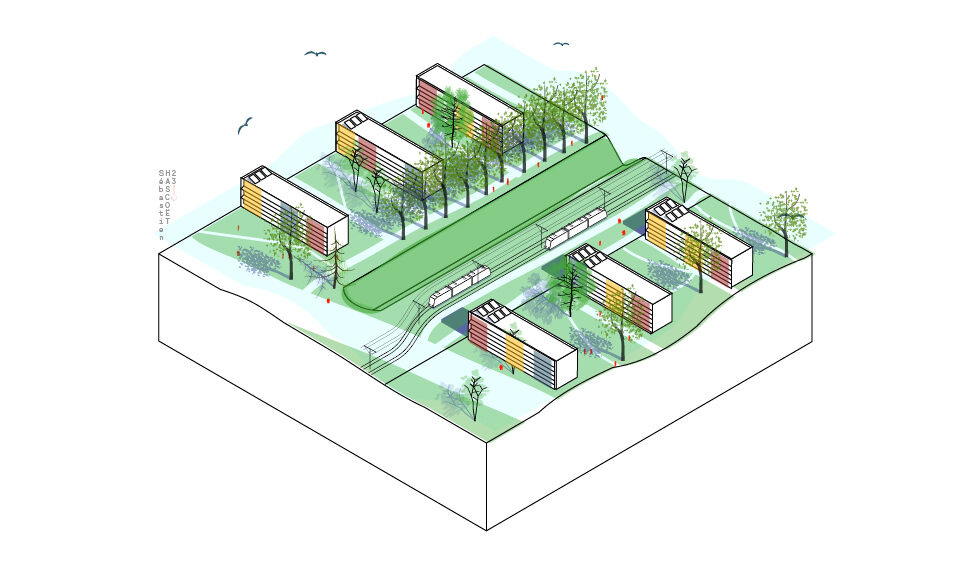The Vauban District in Freiburg, Germany

A Collective Project with Community Appeal
An area of former military land near Freiburg in Germany, Vauban has become one of Europe’s primary showcase eco-districts. From passive and positive-energy homes to green and solar roofs, this 5,500-resident neighborhood is home to countless ecological innovations.
Designed by its residents as a “short-distance neighborhood”, Vauban has gradually reduced the car’s footprint, giving over the streets to children. Bicycle bells and the hum of the tram provide the sound track.
Public gardens alternate with residential areas. Greenery is everywhere: in the street, outside buildings, along walls, on balconies, and on roof terraces, which it shares with photovoltaic panels. The houses are passive meaning they are built to consume less than 15 kwh/m2/year, compared with an average of 250 kwh/m2/year for conventional housing. Others are even “positive”, with any excess energy fed back into the public grid.
Everyone has a role to play in restoring urban environments. The Vauban district shows us that a neighborhood can become a collective project in which the local community loves to get involved.
Axonometry
Sebastien Hascoët
